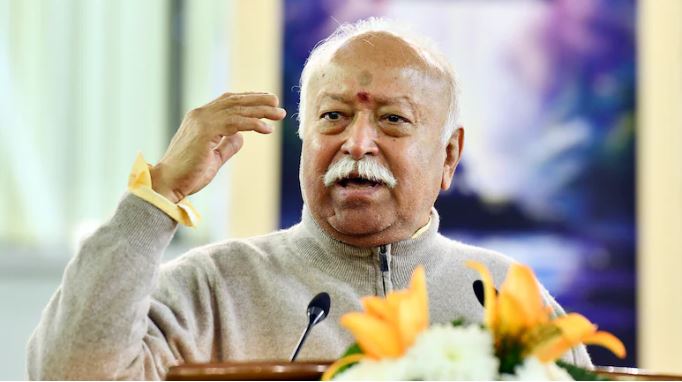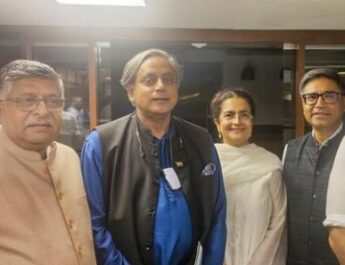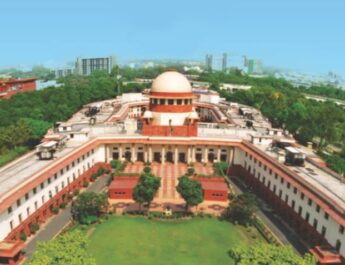New Delhi: Mohan Bhagwat, the leader of the Rashtriya Swayamsevak Sangh, asserted that India attained its ‘true independence’ on the day the Ram Mandir was constructed in Ayodhya. He proposed that the date of the consecration of the Ram temple should be commemorated as “Pratishtha Dwadashi.”
“Following India’s political liberation from British rule on August 15, 1947, a written Constitution was established based on a vision that emerged from the essence of the nation. However, this document was not implemented in accordance with the spirit of that vision at the time,” Bhagwat stated on Monday.
The RSS leader emphasized that this date should be recognized as “Pratishtha Dwadashi,” marking the genuine independence of Bharat, which has endured “parachakra” (foreign invasions) for centuries.
Bhagwat made these remarks while presenting the ‘National Devi Ahilya Award’ to Champat Rai, the general secretary of the Shri Ram Janmabhoomi Teerth Kshetra Trust, in Indore.
According to the Hindu calendar, the consecration of the Ram temple in Ayodhya occurred on the Dwadashi of ‘Shukla Paksha’ in the month of Paush last year, corresponding to January 22, 2024, in the Gregorian calendar. This year, the Paush Shukla Paksha Dwadashi fell on January 11.
He asserted that the Ram temple movement was not initiated to oppose any group. “This movement was launched to awaken the ‘self’ (swa) of Bharat, enabling the nation to stand independently and guide the world,” the RSS chief remarked.
Bhagwat noted that invaders targeted the temples of the country to undermine the “self” of India. He explained that the prolonged duration of the Ram Mandir movement was due to certain forces opposing the construction of a temple at the birthplace of Lord Ram.
Mohan Bhagwat also recalled a meeting with former President Pranab Mukherjee during a time when the topic of ‘Ghar Wapsi’ (the return of converted individuals to their original faith) was being discussed in Parliament.
During the meeting, Bhagwat recounted Mukherjee’s assertion that the Constitution of India stands as the most secular constitution globally, questioning the authority of the world to instruct India on secularism.
He further noted that Mukherjee attributed the foundation of secularism to India’s 5,000-year-old tradition. Bhagwat explained that this ancient tradition, which Mukherjee mentioned, traces its origins to figures such as Lord Ram, Krishna, and Shiva.
He recalled that during the Ram Mandir movement in the 1980s, he frequently encountered a common inquiry regarding the prioritization of the temple issue over the pressing concerns of people’s livelihoods.
In response, he would pose a counter-question, highlighting that despite the post-independence emphasis on socialism and the rallying cry of “Garibi Hatao” (eradicate poverty), India’s status in the 1980s was starkly different from that of nations like Israel and Japan.
Bhagwat emphasized to his audience that the path to India’s economic prosperity is intrinsically linked to the establishment of the Ram temple, urging them to consider this perspective.




